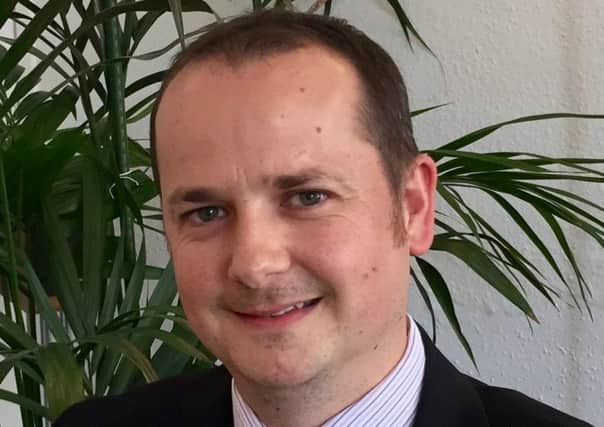Anthony Horan: We must all stand firm against any new attempts to legalise assisted suicid


Here in Scotland it is not only the unborn who are under attack, it is the living too, particularly; the sick, the elderly, the vulnerable and the terminally ill. Under British law, assisted suicide is the act of deliberately assisting or encouraging another person to kill themselves. It is currently illegal in Scotland, as it is in the rest of the United Kingdom, but highly organised and well-funded campaigners are committed to bringing about a change in the law. A cross- party group has already been established in the Scottish Parliament to consider end of life choices, including the right to assisted suicide.
Over the past decade, Scotland’s parliament has voted down two attempts to legalise assisted suicide by large margins: 85 to 16 in 2010, and 82 to 36 in 2015.
Advertisement
Hide AdAdvertisement
Hide AdHowever, a newspaper poll in January 2018, found that 74 per cent of Scots agreed that they would support changing the law to allow assisted suicide; it was 69 per cent in 2014. This is deeply worrying, particularly because similar polls have shown that support for assisted suicide drops considerably when respondents are informed about its real and harmful consequences including the placing of unbearable pressures on older, sick or infirm people who feel they may become a ‘burden’ on their loved ones. Support also falls significantly when people are informed that doctors and disability rights advocates strongly oppose legislation.
Legalising assisted suicide would mean vulnerable people will be pressured into ending their lives and it would change the nature of medicine. The Hippocratic Oath which calls on medical staff to ‘first do no harm’ would be meaningless.
Of course, we must have compassion and sympathy for those who suffer from illness and live in difficult and challenging circumstances. We must also be careful not to confuse assisted suicide or euthanasia with discontinuing medical procedures that are burdensome, dangerous, extraordinary, or disproportionate to the expected outcome. This is both legal under British law and considered ethically acceptable under Catholic moral teaching.
What we must strive to do is to invest in our excellent tradition of palliative care and make life as comfortable as possible for people with a terminal illness, as well as offering support to their loved ones.
Advocates of assisted suicide claim that autonomy rules, and people should be able to decide for themselves when to end their own life. But autonomy is not absolute. That is why we have laws to ensure we do not do certain things which threaten the reasonable freedom of others. It is a fallacy to believe that a decision to end one’s life is exclusively ‘individual’. Suicide has a profound impact on others.
What’s more, assisted suicide is a slippery slope, and in jurisdictions where it has been introduced and normalised, the alleged ‘restrictions’ or ‘safeguards’ put in place have liberalized over time.
For example, euthanasia was introduced in Belgium in 2002. Strict legal conditions were laid down at the time, including that the patient must manifest a serious and incurable disorder caused by illness or injury and that the request for euthanasia must be fully voluntary, well thought out and not due to external pressure.
Sadly, the notion of an ‘incurable disorder’ is not defined and is open to wide interpretation. For example, diabetes, arthritis, emphysema and hepatitis could all be considered to be incurable disorders.
Advertisement
Hide AdAdvertisement
Hide AdThe Belgian Federal Control and Evaluation Commission has also specified that, in elderly people, the cumulative effect of a combination of ailments may cause unbearable suffering and thus justify euthanasia. So loss of hearing and failing eyesight could be considered as being part of a number of disorders used to justify euthanasia.
In Belgium, euthanasia was supposed to be exceptional, a last resort applicable only in the most extreme cases. But it is no longer exceptional, and it is no longer only applicable in extreme cases.
Sadly, assisted suicide creates a culture where some lives are deemed more valuable than others. We must care for and support one another in health but also in times of sickness an vulnerability to show no-one is ever a burden to their loved ones, to society or the state.
In this vein, we must hold our elected representatives to account and challenge them to protect the right to life, in the beginning and at the end; and to stand firm against any fresh challenge to legalise assisted suicide.
Anthony Horan, director, Scottish Catholic Parliamentary Office